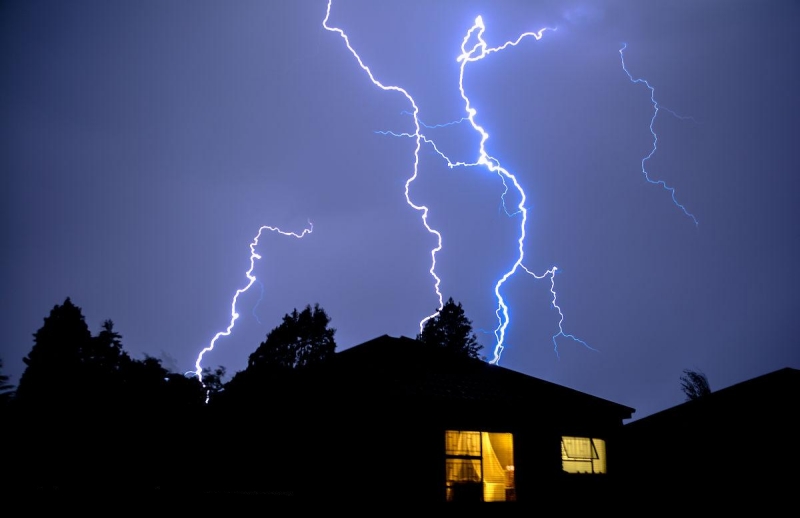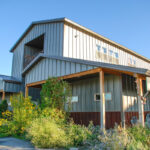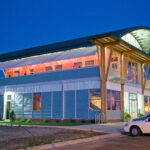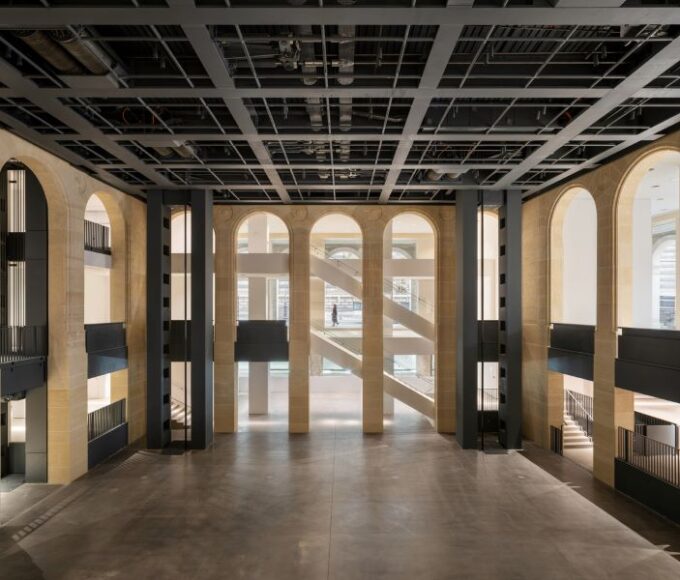When you start talking to your friends and family about your new metal roof, inevitably someone will gasp and say, “Don’t you know that your metal roof attracts lightning!” They might try to convince you to avoid metal roofs in order to avoid attracting lightning strikes.
THE TRUTH
First, we need a basic understanding of lightning. The Metal Construction Association describes it as the “flow of electrical current between earth and sky.” The brightest part of the strike, the flash, happens when electrons from the earth rush up to the sky along a path of ionization. Basically, lightning isn’t interested in your metal roof. It’s only interested in connecting negatively charged electrons with the earth’s positively charged electrons as fast as possible.
It’s impossible to predict exactly where lightning will strike, but topography is a much better indicator of the likelihood of a lightning strike rather than building materials, meaning lightning is more likely to strike mountain tops and tall objects. Lightning is looking for the path of least resistance, so it’s drawn to whatever is closest to the sky. If you build your home on a mountain top or cliff edge, you may be more susceptible to strikes.
The size and proximity of your building to taller structures are two more indicators. If you’re going to build yourself a skyscraper in the middle of the plains, it doesn’t matter what building material you use. Taller and larger buildings are more likely to be struck than their surrounding smaller buildings. If you have a small house close to a huge structure, your risk is likely going to be reduced.
METAL IS YOUR BEST PROTECTION
While metal doesn’t increase the risk of a lightning strike, it does help reduce the impact. Remember, lighting is negatively charged electrons looking for the path of least resistance to the earth’s positively charged electrons. Metal is a great conductor of electricity. When lightning strikes a metal roof it’s conducted away fast toward the ground or another nearby conductor.
Metal is also a non-combustible material. Lightning produces intense heat, and often this heat can cause fires on the roof or inside the house. A metal roof can protect your house from both the heat of the lightning strike and the electrical current because of its non-combustible nature.
In fact, the Metal Construction Association says, “Because metal roofing is both an electrical conductor and non-combustible, the risks associated with its use and behavior during a lightning event make it the most desirable construction available.”
While metal roofing can keep you safer during a lightning strike, your property can still be damaged. If you live in an area prone to electrical storms or own expensive electrical equipment you should consider a lightning protection system, which creates a consistent connection between the earth and sky.
From what we understand about lightning, it’s clear that metal roofing is no more likely to attract lightning than other roofing materials. Metal is one of the best materials you can consider for your roof. So next time someone asks you about your roof and whether or not it attracts lightning, you can share this myth-busting knowledge.












